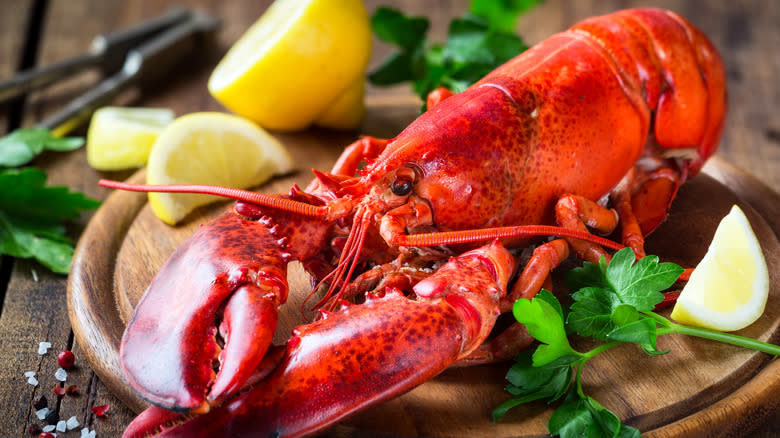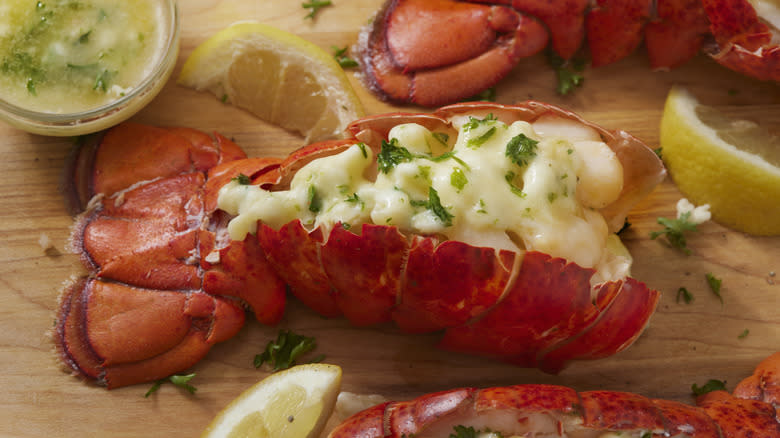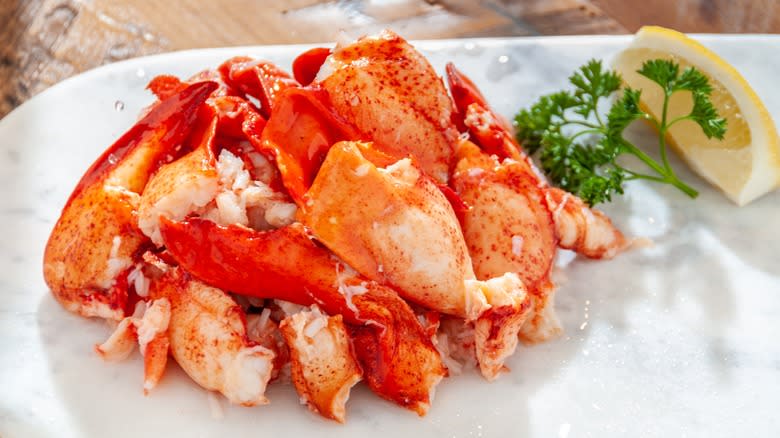The Science Behind Why You Shouldn't Freeze Live Lobster

Lobsters -- whichever type you're eating -- are one of the few proteins we typically cook while still alive in America. Hey, gotta get them as fresh as possible, right? And couldn't you supercharge this process by freezing them while they're still alive? After all, everyone knows they go toxic when they die before being cooked, so isn't this a natural evolution in the process?
No, it is not. Food safety isn't the problem at all here; that thing you've heard about lobsters going toxic due to stress hormones when they die (meaning you can't kill them before cooking them) is totally made up. The issue with freezing lobsters -- whether alive or not -- is primarily due to food quality and food science reasons: freezing lobster while raw (whether alive or not) leads to serious issues in texture and getting it out of the shell. You don't want to freeze them uncooked to keep yourself healthy; you want to do so to save yourself time and effort.
Read more: 12 Underrated Types Of Fish You Should Try At Least Once
Lobsters Do Not Become Poisonous When They Die Uncooked

The concept behind freezing live lobster was unintentionally introduced to the market around 20 years ago when a Connecticut company announced that around 12 out of 200 lobsters when frozen while still alive, "came back to life" when thawed in salt water. It was essentially an accidental cryogenics experiment. Because of the myth about lobsters needing to be alive when you cook them for food safety, it makes it seem like freezing them alive would be a great idea.
But, as we've mentioned, the entire premise here is actually false. Lobsters don't instantly become poisonous if they die before preparation; the misconception comes from the fact that they simply spoil very, very fast. In addition, the meat could've theoretically been tainted with tomalley -- that green stuff inside a lobster's shell -- which can have toxic substances in it.
But the toxins aren't due to freezing or the lobster dying outside of a boiling pot. That's nonsense. Think about it: you've seen frozen, uncooked lobster tails at the grocery store, right? Those tails aren't shellfish poison; they're totally safe. The problem instead is a logistical one: freezing lobsters while raw typically results in them being a colossal pain to deal with later.
Frozen Raw Lobster Is Impossible To De-Shell Cleanly

When a lobster's uncooked flesh freezes, the high water content causes the meat to expand. For most fish filets, this isn't a problem, but there's an obvious reason why this presents a difficulty in the case of lobster: it has a hard shell. So you're left with a situation where you have a rigid container and something that's suddenly too big to fit inside that container. Not only can this tear the protein (destroying the texture), but it also makes the meat stick to the shell, meaning that when you cook them, the flesh is wedged on so hard you can't get it off. Frozen grocery lobster tails get around this issue by being mostly removed from the shell before they're frozen (which, theoretically, you could do yourself if you wanted; it would just be kind of annoying).
You can, however, freeze cooked lobster meat. While freezing raw lobster is (usually) a bad idea, cooked lobster takes to freezing as well as a lot of other seafood -- and since the cooking process releases a lot of the water that causes the meat to expand in the first place, shrinking it and naturally separating it from its shell, you can actually freeze them whole if you want.
Read the original article on Daily Meal.

